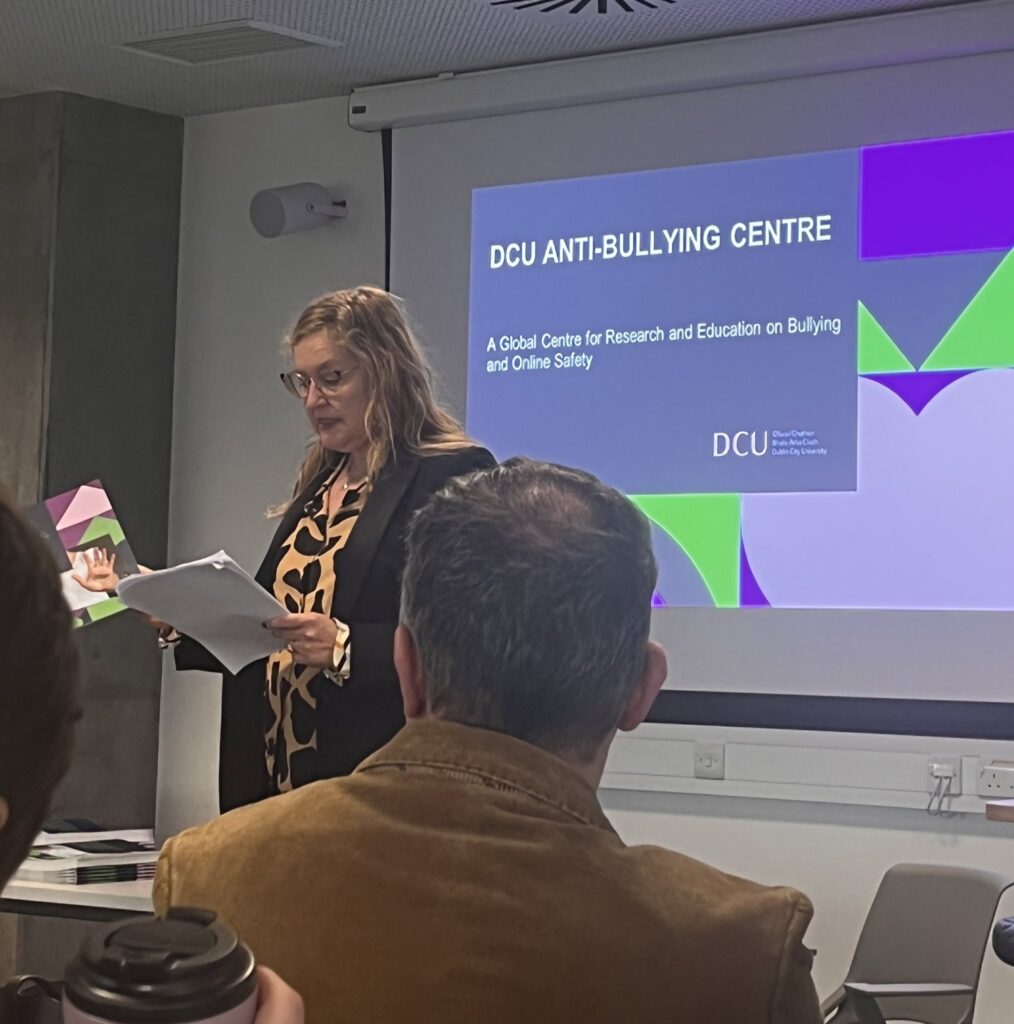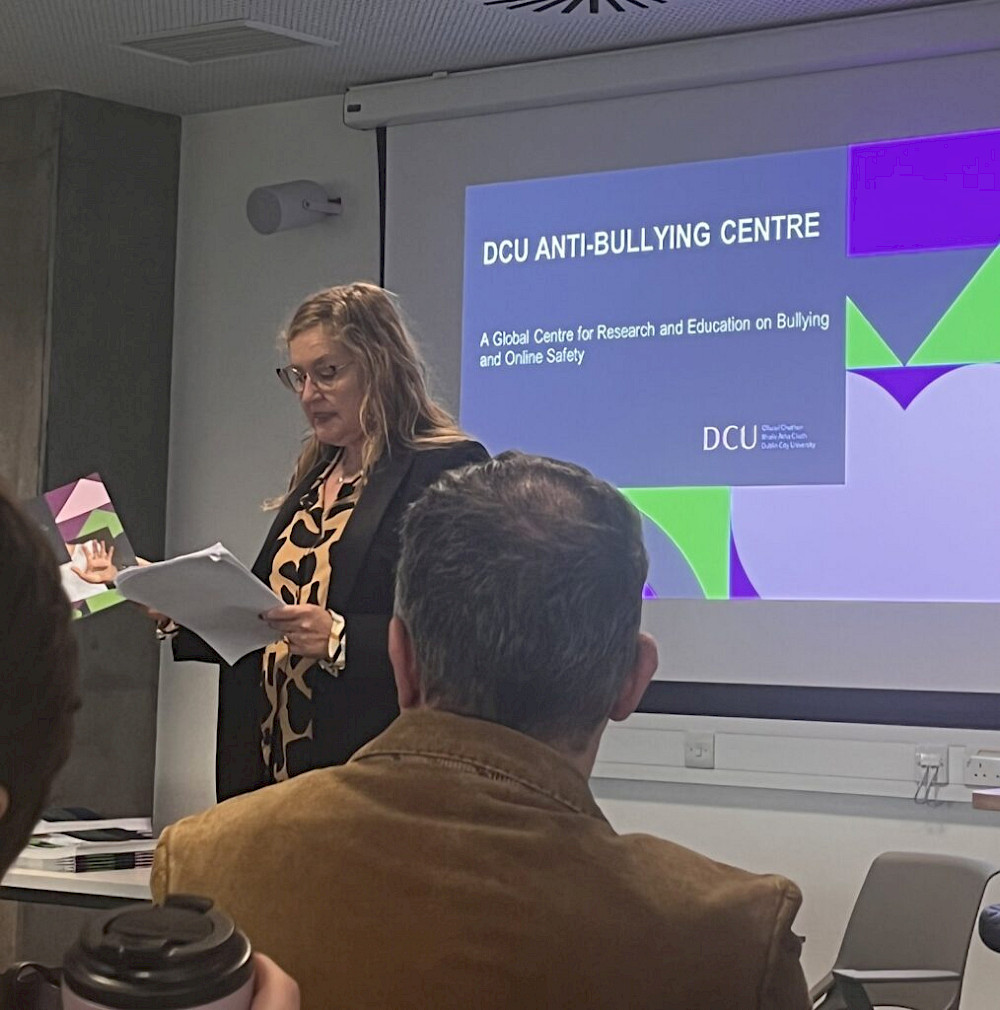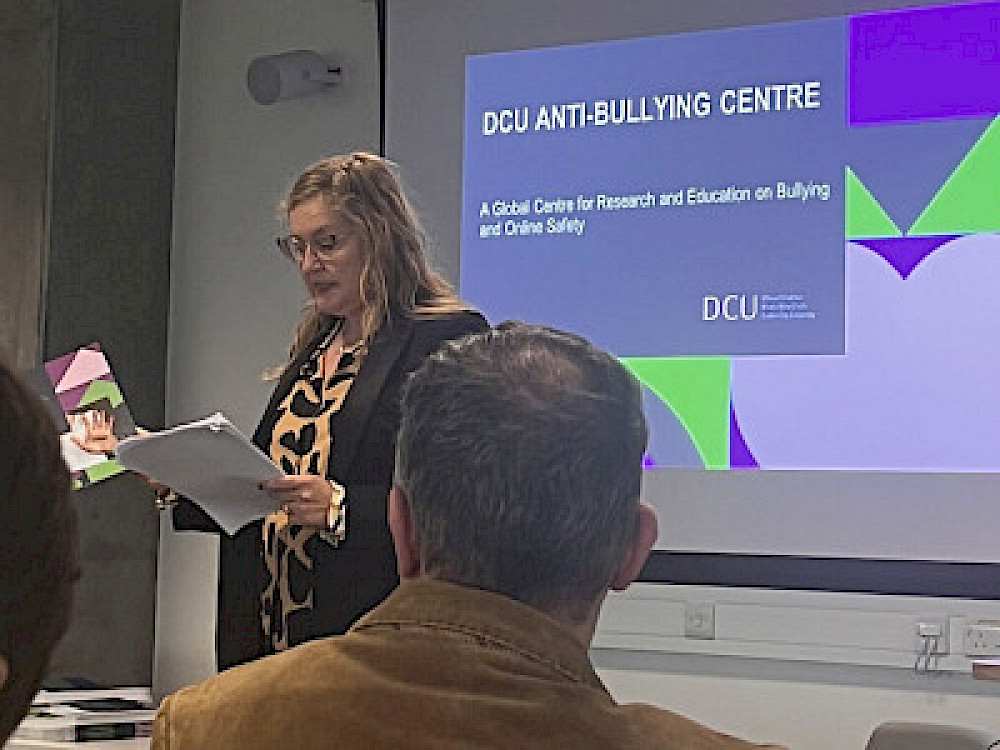“Young People’s Experiences of Sexual and Gender-based Harassment and Abuse During the Covid-19 Pandemic in Ireland: Incidence, Intervention and Recommendations” - a report by FuJo researchers Debbie Ging and Ricardo Castellini da Silva is one of the first pieces of research in Ireland to pilot and document responses to a classroom intervention on sexual and gender-based abuse among youth. This project was developed as part of a two-country study involving Ireland and England which was carried out during the Covid-19 pandemic in 2021. Irish study was conducted by the DCU Anti-Bullying Centre while the Institute of Education at University College London carried out the study in England. It was inspired by growing rates of sexual and gender-based abuse among youth, as well as by reports indicating that these forms of abuse became significantly more acute during the Covid-19 pandemic.
The launch event of the report was an AOIR satellite event hosted by the DCU Anti-Bullying Centre and FuJo. The report was launched by Prof. Jessica Ringrose from University College London, who collaborated on the project.
The report presents the findings from 185 surveys and 10 focus groups conducted with 60 young people aged 15-17 in 2021. The findings show that social media use increased significantly during the pandemic. They also indicate an increase in levels of online harassment and abuse, especially for girls and LGBTQ+ students. Girls experienced more digital harassment of a sexual nature than boys by a significant difference, including heightened experiences since Covid-19. Roughly twice as many girls (33.3%) as boys (17.4%) received unwanted sexual photos from friends, adult strangers, and people they know only online.
Feedback from the workshops points to significant gaps in young people’s knowledge about gender-based and sexual harassment and abuse, and in the Relationships and Sexuality Education (RSE) curriculum’s provision of education on these issues, as well as on digital rights, ethics and consent.

Prof. Ringrose notes that providing consistent education to young people to build a culture of respect and consent is one of the best ways to tackle the issue of sexual harassment.
"The only option is education. The more young people know how to protect themselves online, the more they understand issues to do with sex education and keeping themselves safe and healthy, the better they’ll be in their relationships, moving into their adult lives as well.”
The researchers hope that this report will help to inform future improvements to Relationships and Sexuality Education and digital safety education in Ireland by providing new data on the extent and nature of sexual and gender-based harassment and abuse, by reporting on which types of classroom interventions worked best, by presenting the perspectives and experiences of young people themselves, and by making concrete recommendations on what students need to navigate these issues.
Read the full report here.




